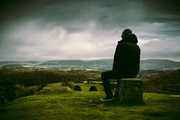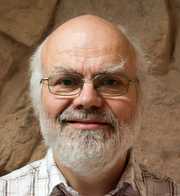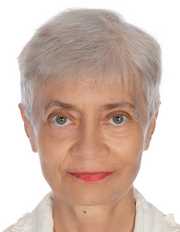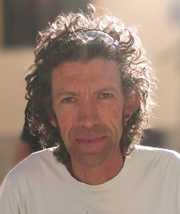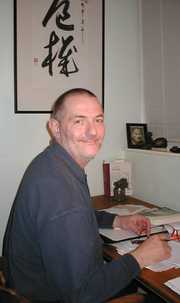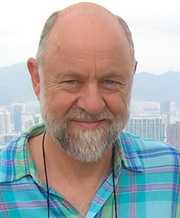Dharma Library
A large collection of articles, from past issues of New Chan Forum and more besides.
- Search by keywords, using the search box
- Or click on the buttons found below the listed articles to select by categories:
-
A koan retreat - an embodied intuitive process
Anonymous retreatant |Read more of: A koan retreat - an embodied intuitive processAs a regular Zen meditation 'just sitting' sitter I was drawn to trying a Koan retreat as historically working with a Koan has been a complementary practise. I didn't really know what to expect but imagined it would be some kind of mental 'short circuiting' of the left-brain rational mind.
What actually happened was a much more embodied intuitive process that unfolded across the week. The Koan…
-
Where is the Compassion in Chan?
Simon Child |Read more of: Where is the Compassion in Chan?A question which is commonly asked on retreat is, “Where’s the compassion in Chan?” We’re sitting here, self-absorbed, navel-gazing, ignoring everybody else, not talking to anyone, just focusing on our own enlightenment. Where is there any hint of compassion in this practice?
-
Retreat Report: Awareness in the Everyday
Anonymous retreatant |Read more of: Retreat Report: Awareness in the EverydayShawbottom Farm 2024, Leaders Juliet Hackney and Alysun Jones
In order for me to go on retreat there had to be a negotiation with those I would leave behind, my wife and my stepdaughter. It is all too easy to forget the personal cost to others of the absence of those going on retreat. The initial reluctance to let me go, in time moved to acceptance that I could.
This was my first retreat and it…
-
Helping Others
Anna Jedynak |Read more of: Helping OthersIn the Buddhist tradition, masters make different statements about helping others. Some warn that improving the world should always start with oneself, because until one helps oneself, one cannot help others. By acting from a disturbed mind, we harm rather than help. The Tibetan yogi Milarepa said of helping: “If there is not the slightest degree of self-interest in such earthly matters, this is…
-
My tenth Silent Illumination retreat
Anonymous retreatant |Read more of: My tenth Silent Illumination retreatShawbottom Farm 2024, Leader Simon Child
This was my tenth Silent Illumination retreat. Looking back over previous retreat reports, there is a constant theme: when will I stop manipulating my meditation and learn to let go?
My typical retreat would begin with the feeling that finally I have learnt the knack of meditation – how to conjure up the (rather self-indulgent) experience of floating in…
-
Grieving for Millie
David Valentine-Hagart |Read more of: Grieving for MillieSuddenly
The presence of
Absence
Yet her bowls still sit
On the kitchen floor
Her bed
Her donut of comfort
Still lies outside
Our bedroom door
I cannot move them
Yet
Though she is so sudden gone
I must ease myself gently
Through this grief
These things are yet remembrance
Of our little friend
Her sudden unexpected end
Death, the unexpected thief
In due time
They will be washed clean
And then put away
Like all memories
… -
An Anonymous Haiku
Anonymous |Read more of: An Anonymous HaikuWritten During a Snowy Retreat in January 2025
midwinter
a hare's tracks
returning to solitude
-
The Boat Monk and the 'Zenny' Teacher
Eddy Street |Read more of: The Boat Monk and the 'Zenny' TeacherBased on a talk given at the Scout Hut, Canton Cardiff May 2014
There are many Zen stories that are important for us to know. These stories are often dialogues between Masters and their students with the most well-known of them found in the collections of koans such as ‘The Book of Serenity’ and ‘The Blue Cliff Record’. These collections were assembled by the compilers, who then provided…
-
Basho’s “Form” on the Subject of “Emptiness”
George Marsh |Read more of: Basho’s “Form” on the Subject of “Emptiness”Matsuo Basho was the great innovator in haiku poetry in 17th century Japan. He was also a Zen Buddhist, though he seems to have been sometimes a Buddhist priest and at other times a travelling poet, sometimes in a black robe, sometimes not. He was also an innovator in writing prose travel journals: the haibun form, which was a prose journal with haiku poems.
The haiku aesthetic was already well…
-
Western Zen Retreat report - just do it!
Anonymous retreatant |Read more of: Western Zen Retreat report - just do it!“What on earth I was I thinking, booking myself onto a Western Zen retreat? Too late now, I’ll just have to cope.” These were the thoughts in my head as I set off towards Shawbottom Farm.
At least in the Vipassana tradition I was used to I was practicing alone in my room and I only had to deal with the daily interview with my teacher. If I had understood it correctly, I was going to have to talk…
Featured
By author
More
©Western Chan Fellowship CIO 2026. May not be quoted for commercial purposes. Anyone wishing to quote for non-commercial purposes may seek permission from the WCF Secretary.
The articles on this website have been submitted by various authors. The views expressed do not necessarily represent the views of the Western Chan Fellowship.
Permalink: https://w-c-f.org/Q358

